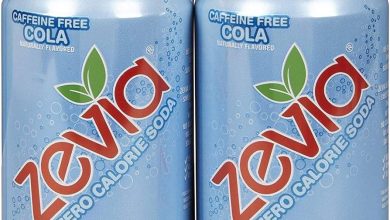Tilefish (Cooked with Dry Heat)
Tilefish, a flavorful and versatile white fish, is a fantastic source of lean protein. When cooked using dry heat methods such as grilling, baking, or broiling, it retains its delicate, tender texture while providing a rich nutritional profile. Below is a detailed breakdown of the nutritional content and benefits of tilefish prepared with dry heat.
Nutritional Information (per 100g)
| Nutrient | Amount |
|---|---|
| Energy | 147 kcal |
| Protein | 24.49 g |
| Total Fat | 4.69 g |
| Saturated Fat | 0.868 g |
| Carbohydrates | 0.0 g |
| Dietary Fiber | 0.0 g |
| Sugars | 0.0 g |
| Calcium | 26.0 mg |
| Iron | 0.31 mg |
| Magnesium | 33 mg |
| Phosphorus | 236 mg |
| Potassium | 512 mg |
| Sodium | 59.0 mg |
| Zinc | 0.53 mg |
| Copper | 0.052 mcg |
| Manganese | 0.015 mg |
| Selenium | 51.5 mcg |
| Vitamin C | 0.0 mg |
| Thiamine (B1) | 0.14 mg |
| Riboflavin (B2) | 0.19 mg |
| Niacin (B3) | 3.5 mg |
| Vitamin B6 | 0.3 mg |
| Folate (B9) | 17.0 mcg |
| Vitamin B12 | 2.5 mcg |
| Vitamin A | 21.0 mcg |
| Vitamin E | 0.0 mg |
| Vitamin D2 | 0.0 mcg |
Allergen Information:
Tilefish, like most fish, is classified as a major allergen. Those with a fish allergy should avoid consuming tilefish. This product is naturally gluten-free, dairy-free, and soy-free.
Dietary Preferences:
Tilefish is an excellent option for a variety of dietary preferences, including:
- Paleo and Keto diets: High in protein and healthy fats, with zero carbohydrates.
- Low-fat diets: With only 4.69g of total fat per 100g serving, tilefish is a lean protein source.
- Whole30: This fish fits well into Whole30 guidelines as it is a clean, whole food without added sugars or processed ingredients.
- Gluten-free: As a fish, tilefish contains no gluten, making it safe for those with gluten sensitivity or celiac disease.
Health Benefits:
Tilefish is a highly nutritious fish, rich in protein, essential minerals, and a range of vitamins. With 24.49g of protein per 100g, it’s an excellent source of lean protein, which is vital for muscle growth, repair, and overall health. The fish also contains significant amounts of phosphorus (236mg) and potassium (512mg), both of which are important for bone health, muscle function, and maintaining proper hydration levels.
Additionally, tilefish provides 51.5mcg of selenium, a potent antioxidant that plays a crucial role in maintaining immune function, thyroid health, and protecting against oxidative stress. Its moderate levels of vitamin B12 (2.5mcg) support nerve health and energy metabolism, while niacin (3.5mg) helps regulate cholesterol levels and improve cardiovascular health.
Though tilefish contains very small amounts of essential nutrients like calcium (26mg) and iron (0.31mg), these add to its overall contribution to maintaining a balanced and healthy diet.
Tips for Cooking Tilefish:
- Grilling: Grilling tilefish can bring out its natural sweetness. Brush the fillets with olive oil and season with lemon, garlic, and fresh herbs like thyme or rosemary for a flavorful dish.
- Baking: For a simple and healthy option, bake tilefish with a sprinkle of your favorite spices and a drizzle of olive oil.
- Broiling: Broiling tilefish is an excellent method to create a crispy exterior while maintaining the fish’s moist interior.
Conclusion:
Tilefish is an outstanding fish choice for anyone seeking a lean, protein-packed meal with minimal carbohydrates. It is rich in important nutrients, including phosphorus, potassium, and selenium, while being naturally low in fat and free from common allergens like gluten. Whether you’re following a specific dietary plan or simply looking for a healthy seafood option, tilefish cooked with dry heat can be a delicious and nutritious addition to your meal repertoire.










